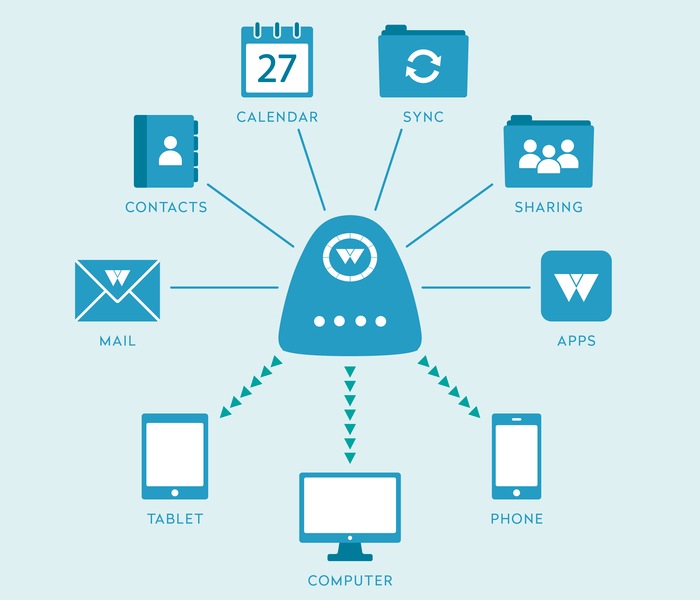Cloud Storage: Revolutionizing Personal Data Management

In the digital age, managing personal data has become increasingly complex. Enter cloud storage, a revolutionary solution that offers unparalleled convenience, accessibility, and data protection. This innovative technology is transforming the way we store and manage our precious memories, important documents, and essential files.
Cloud storage provides a secure and reliable platform to store your data remotely, allowing you to access it from any device, anywhere, anytime. It eliminates the need for physical storage devices, freeing up space and reducing the risk of data loss due to hardware failures or accidental damage.
Features and Benefits of Cloud Storage for Personal Use

Cloud storage offers numerous advantages for personal data management. Its primary benefits include:
Convenience: Cloud storage eliminates the need for physical storage devices and simplifies file management. Users can easily upload, download, and access their files from any device with an internet connection.
Accessibility: Cloud storage enables remote access to files, allowing users to retrieve and share their data from anywhere, anytime. This flexibility is especially useful for individuals who frequently travel or work remotely.
Data Protection: Cloud storage provides robust data protection features, such as encryption, backup, and versioning. This ensures that users’ sensitive information remains secure and protected against data loss, breaches, or hardware failures.
Simplified File Management
Cloud storage streamlines file management by providing a centralized location for all files. Users can easily organize and categorize their files, making it effortless to locate and retrieve specific documents, photos, or videos.
Remote Access
Cloud storage enables remote access to files from any device with an internet connection. This allows users to access their files while traveling, working remotely, or even from their smartphones.
Data Safeguarding
Cloud storage providers implement advanced security measures to protect users’ data. Encryption ensures that files are protected from unauthorized access, while backup and versioning features prevent data loss in case of hardware failures or accidental deletions.
Types of Cloud Storage Services
Cloud storage services can be broadly classified into three main types: public cloud, private cloud, and hybrid cloud. Each type offers a unique set of features and benefits, catering to different user requirements.
Public Cloud
Public cloud storage services are offered by third-party providers, such as Amazon Web Services (AWS), Microsoft Azure, and Google Cloud Platform (GCP). These services are accessible over the internet and provide a pay-as-you-go pricing model. Pros:
-
-*Scalability
Public cloud services offer virtually unlimited storage capacity, allowing users to scale their storage requirements on demand.
-*Cost-effectiveness
Public cloud storage is generally more cost-effective than on-premises storage, as users only pay for the storage they use.
-*Ease of use
Public cloud storage services are typically easy to set up and manage, with user-friendly interfaces and automated features.
Cons:
-
-*Security
Public cloud storage may not be suitable for storing highly sensitive data, as it is shared with other users on the same platform.
-*Limited control
Users have limited control over the infrastructure and security measures of public cloud storage services.
-*Latency
Accessing data stored in public cloud storage can sometimes result in latency, especially for geographically dispersed users.
Private Cloud
Private cloud storage services are hosted on dedicated infrastructure within an organization’s own data center.
These services offer greater control and security over the storage environment. Pros:
-
-*Security
Private cloud storage provides enhanced security measures, as it is isolated from other users and external networks.
-*Control
Organizations have full control over the hardware, software, and security configurations of their private cloud storage environment.
-*Customization
Private cloud storage can be customized to meet specific business requirements, such as compliance regulations or performance optimizations.
Cons:
-
-*Cost
Private cloud storage can be more expensive than public cloud storage, as organizations need to invest in hardware, software, and maintenance.
-*Scalability
Scaling private cloud storage may be more complex and time-consuming than scaling public cloud storage.
-*Management
Private cloud storage requires dedicated IT resources for management and maintenance, which can be a burden for smaller organizations.
Hybrid Cloud
Hybrid cloud storage services combine elements of both public and private cloud storage.
They allow organizations to store data in a combination of on-premises and public cloud environments. Pros:
-
-*Flexibility
Hybrid cloud storage provides flexibility by allowing organizations to store data in the most appropriate location based on security, cost, and performance requirements.
-*Security
Hybrid cloud storage can enhance security by isolating sensitive data in private cloud environments while leveraging the scalability and cost-effectiveness of public cloud for less critical data.
-*Scalability
Hybrid cloud storage allows organizations to scale their storage capacity by seamlessly integrating public cloud resources when needed.
Cons:
-
-*Complexity
Managing hybrid cloud storage environments can be more complex than managing either public or private cloud storage alone.
-*Cost
Hybrid cloud storage can be more expensive than public cloud storage, as it involves both on-premises and cloud costs.
-*Data management
Ensuring data consistency and security across multiple storage environments can be challenging in hybrid cloud storage.
Choosing the Right Cloud Storage Provider
When selecting a cloud storage provider for personal use, consider the following key factors:
-
-*Storage capacity
Determine the amount of storage space you require based on your current and future file storage needs.
-*Pricing
Compare the pricing plans offered by different providers, considering both monthly subscription fees and any additional charges for exceeding storage limits or accessing premium features.
-*Security measures
Assess the security protocols employed by the provider, such as encryption, two-factor authentication, and data backup procedures, to ensure the protection of your sensitive data.
-*Customer support
Evaluate the quality and availability of customer support offered by the provider, as it can be crucial in resolving any issues or answering your queries promptly.
Tips for Evaluating Providers
To choose the best cloud storage provider for your needs, follow these tips:
-
-*Identify your specific requirements
Determine the essential features and storage capacity you need.
-*Research different providers
Explore the websites, reviews, and user testimonials of potential providers to gather information about their services.
-*Compare pricing plans
Analyze the cost structures of different providers, considering both monthly fees and any additional charges.
-*Consider security measures
Evaluate the security protocols and data protection policies of each provider to ensure the safety of your data.
-*Check customer support
Assess the availability and responsiveness of customer support channels, as it can impact your experience in case of any issues.
Best Practices for Using Cloud Storage

Best practices for effective and secure cloud storage include:
-*Data Backup Strategies
Regularly back up important data to multiple cloud storage accounts or external hard drives.
-*File Organization Techniques
Organize files logically using folders and subfolders. Utilize file naming conventions for easy retrieval.
-*Access Control Measures
Implement access controls to limit who can view, edit, or share files. Use strong passwords and two-factor authentication.
-*Optimizing Storage Space
Utilize compression tools to reduce file sizes. Consider cloud storage services with tiered storage options.
-*Data Protection
Enable encryption for sensitive data. Regularly review access logs to monitor activity.
-*Data Integrity
Use version control to track changes to files. Regularly verify file integrity using checksums or other methods.
Cloud Storage for Specific Use Cases
Cloud storage offers a versatile solution for various personal storage needs, enhancing productivity, streamlining workflows, and preserving memories.
Storing Photos and Videos
Cloud storage provides a secure and accessible platform for storing and organizing precious photos and videos. With automatic backup features, you can safeguard your memories from device failures or accidental deletion. You can easily share these cherished moments with family and friends, regardless of their location.
Document Management
Cloud storage streamlines document management by centralizing all your important files in one accessible location. You can create folders, organize documents, and collaborate with others in real-time. This eliminates the hassle of searching through multiple devices or dealing with bulky physical storage.
Backups
Cloud storage provides a reliable backup solution for your essential data, ensuring its protection in case of hardware failures or data loss. You can schedule automatic backups to create multiple copies of your files, giving you peace of mind knowing that your valuable information is secure.
Other Use Cases
Beyond these core use cases, cloud storage also offers solutions for:
- Storing music and podcasts for easy access and organization
- Archiving emails and messages for long-term storage and retrieval
- Backing up mobile device data to prevent loss due to theft or damage
- Collaborating on projects with remote teams by sharing files and documents
By leveraging cloud storage for these specific use cases, you can unlock its full potential for personal use, enhancing your productivity, preserving your memories, and simplifying your digital life.
Summary
Cloud storage is not just a technological advancement; it’s a paradigm shift in personal data management. It empowers individuals to take control of their data, safeguard their memories, and enhance their digital lives. As cloud storage technology continues to evolve, we can expect even more innovative and transformative solutions that will redefine the way we interact with our data.









